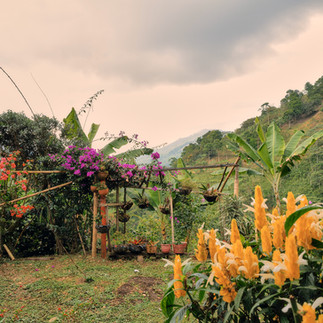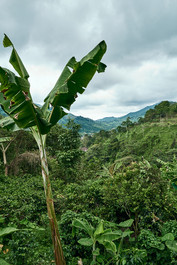Coffee Farm: Traditional Practices
- cafe746
- Apr 24, 2023
- 1 min read
Story by Anastasia Arvanites and Kimon Skarlatos
Photo Credits: Peter Stog for Lokl Cafe
Jesus’ Coffee Farm

As we discovered in our journey to Philippe’s farm [journal link] in Quindio, Colombia, the country’s robust coffee industry dates back to the late 1800s. From both their experimental and traditional methods alike to their climate, which is favorable to the cultivation of high-quality beans, Colombia is still a leading producer of organic, specialty coffee.


Jesus’ farm, where his family continues the long-standing traditions that make Colombian coffee lauded around the world today.

Upon arrival, Jesus and his family greeted us with a hearty breakfast and coffee – a sense of tradition runs deep within their culture.
As we walked through the operation, Jesus shared the traditional methods they use to process beans.
A time consuming method, the labors of the Honey Process have long helped his family harvest and process flavorful beans.
A production time of three months means more than a long wait though – it’s betting that the risk of fickle weather and market changes will yield a high reward.

Jesus places his trust in the process as his ancestors did before; to him, high quality beans are worth every step.
Trust in the Process
A tale as old as time, the fight between modern and traditional methods span across all areas of life. When it comes to coffee production, experimental and traditional methods alike boast excellent, specialty coffee beans, both with their own set of unique flavor profiles.

No matter the process, it’s clear from our time in Quindio that the journey to quality coffee is a complex one!



























